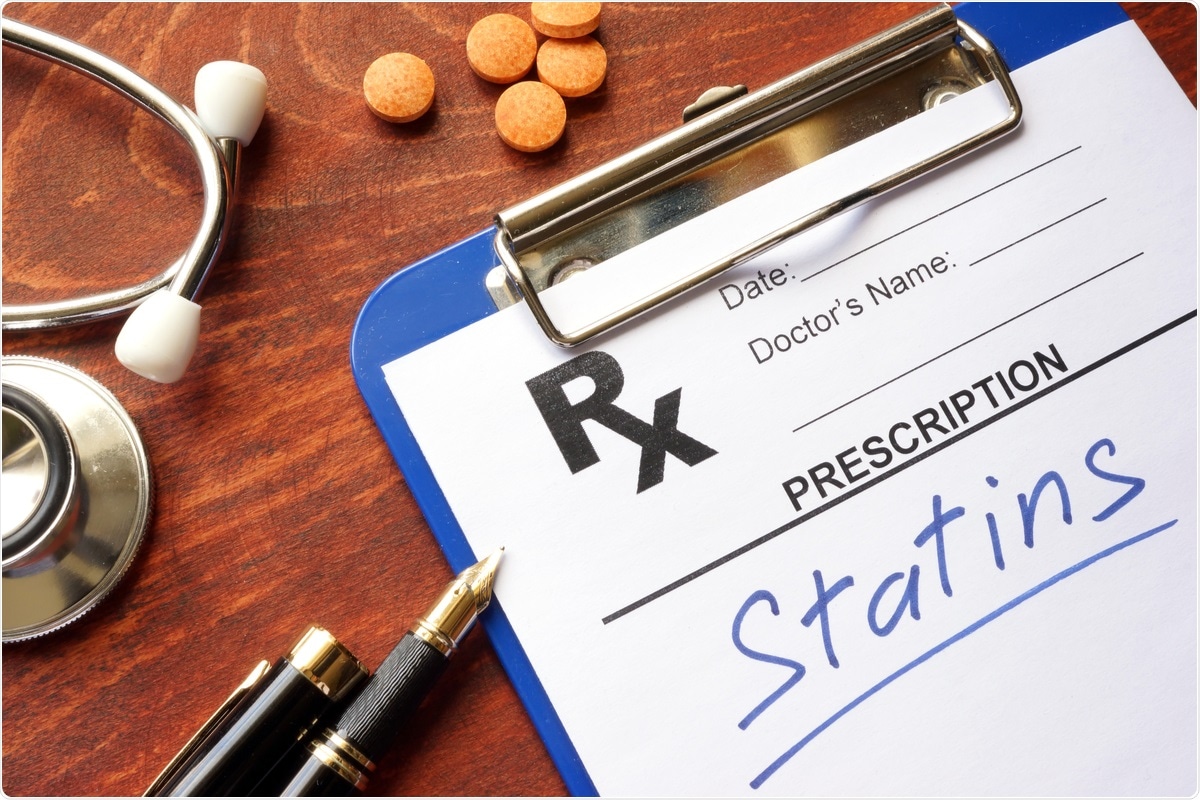The coronavirus disease 2019 (COVID-19) pandemic emerged in Wuhan, China, and spread rapidly across the globe. With a high transmission rate, few treatments, and high mortality rates in at-risk groups, countries faced with high death rates and overwhelmed health services enacted social distancing measures, lockdowns, and other restrictions designed to prevent the spread of the disease. Finally, as mass vaccination programs begin to take hold, these restrictions are beginning to be lifted.
 Study: HMG-CoA reductase inhibitors and COVID-19 mortality in Stockholm, Sweden: A registry-based cohort study. Image Credit: Vitalii Vodolazskyi/ Shutterstock
Study: HMG-CoA reductase inhibitors and COVID-19 mortality in Stockholm, Sweden: A registry-based cohort study. Image Credit: Vitalii Vodolazskyi/ Shutterstock
However, there are still relatively few treatments. Monoclonal antibodies have been shown to have limited effect, and many highly touted repurposed drugs that have gained media attention show little to no effect. Recently, claims have begun to arise about statin treatment and COVID-19 mortality rates. In a study published in the journal PLOS Medicine, a group of researchers has been investigating the relationship between the drug and survival rates.
The study
Lipid-lowering HMG-CoA reductase inhibitors (statins) are normally used to try and reduce cholesterol levels and treat cardiovascular diseases. These drugs inhibit HMG-CoA reductase to prevent cholesterol synthesis. They are also used to modulate the immune system, improve endothelial function, reduce the risk of thromboses, reduce blood vessel inflammation and increase fibrinolysis. Most current studies investigating the effect statins show on COVID-19 survival are of necessity small - they only include hospitalized populations, and most are from early pandemic cases.
The researchers gathered data from almost 1 million residents of Stockholm between March and November 2020, and examined their prescriptions, healthcare data, and matched them to the Swedish Cause of Death Registry. The researchers included all individuals 45 or older. This was in an attempt to reduce the number of pregnant women who would not be taking statins, and young people, who would be less likely to die from COVID-19 whether taking statins or not. Those with liver disease were also disqualified, as they could not take statins.
The scientists used cause-specific Cox regression to analyze the relationship between statin treatment and COVID-19 death rates. This is an extension of the Cox proportional hazards model, which is the natural choice for modeling the effects of covariates on the hazard rates when there are no competing events.
Still, the cause-specific Cox regression allows this model to be set to each hazard. The cause-specific hazard is the instantaneous rate of failure due to one of the causes. The researchers adjusted their hazard ratios and confidence intervals for sex, age, country of birth, education, disposable income, residential area, housing crowding, nursing home, exposure to ACE inhibitors and other drugs, and a broad range of diseases. Subgroup analyses were also performed for some of these factors, and sensitivity analyses were performed to scrutinize the results.
In total, 169,642 individuals had collected at least one statin prescription out of a total of 963,876. Statin users had a median age of 71 years, were more likely to be male, have comorbidities such as heart disease, heart failure, and hypertension, and were significantly more likely to be taking other medicines.
They had a lower likelihood of attending university than non-statin users and less disposable income. Out of the 963,876 individuals, 2545 died from COVID-19, including 765 statin users. When adjusted for confounders, statin treatment showed a significant, if modest, lowered risk of mortality from COVID-19. These results are supported by several other studies showing similar findings.
Conclusion
The authors highlight the importance of their study in clarifying and expanding the current understanding of the relationship between COVID-19 and statins. While other studies had begun to explore the potential of statin activity in protecting against the disease, the author's research shows that the relationship remains significant when examined across a much larger population. This information could be valuable in furthering the understanding of COVID-19 and could lead to a target for drug development.
The authors point out several limitations in their study. In any study of this type, residual confounding factors cannot be ruled out - data was not gathered on body mass index or smoking, both of which are significantly linked to statin use and can affect COVID-19 mortality. There is even some small evidence that heavy smoking may protect against infection with COVID-19. The researchers recommend continued prescription of statin treatment for heart disease and awaiting the results of clinical trials for further examination.